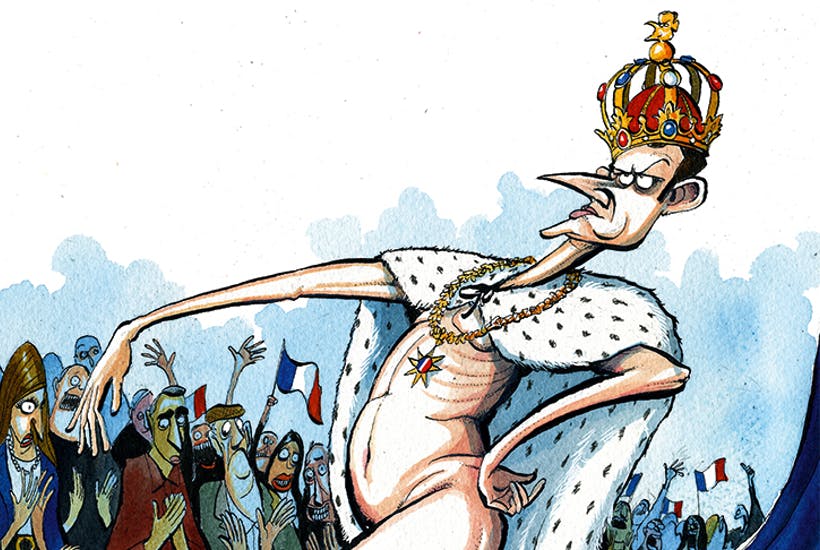The labour market would be revolutionised. France would start growing rapidly again, leading the way in Europe. Tech entrepreneurs would flock to Paris, along with the bankers fleeing the City, while companies from around the world would be relocating to newly invigorated industrial hubs in Lyon and Toulouse. That anyway was the script when the centrist reformer Emmanuel Macron was elected to the French Presidency.
Today we saw what the Macron revolution would actually amount to as his government finally unveiled his major set of labour market reforms. Predictably enough the major trade unions have already said they will oppose it, and the riot police will no doubt be standing by with their water cannons and batons as he tries to get the package through Parliament.
But Macron’s real enemy is not the street protesters. It is himself. In fact, the reforms are typically timid. Just take a look at some of the detail. Companies will be allowed to by-pass industry-wide union agreements and hold a referendum on employment changes. Really? It is hard to see many thinking that is a great innovation. After all, who knows what crazy stuff the staff will vote for? Multi-national companies might be allowed to shut plants in France even if they make profits elsewhere. Well, that should be normal. A real reform would let them close plants they no longer required, and get rid of staff they don’t need, regardless of overall probability. There will be some minor caps on wrongful dismissal pay-outs, and some extra exemptions for companies with fewer than fifty staff. And, er, that’s about it.
At the same time, all the major barriers to hiring new staff are left in place. France will still have some of the highest payroll taxes in the world. Social security charges add 45 per cent to the wage bill in France, compared with 13 per cent in this country and 19 per cent in Germany. It still has the 35- hour week. It has among the most generous parental leave in the world – mothers get 34 weeks for their third chid, and both parents can take three years out with their job held open. And so on.
All that is great for workers, but it comes at a cost. Employers are terrified of taking on new people, which is why unemployment in France has been stuck at 10 per cent for years, twice the rate in this country or Germany, and youth unemployment is over 20 per cent. The measures that destroy jobs will all remain in place under Macron’s watch. Indeed, some of the reforms will make the situation worse. The exemptions for companies with fewer than 50 staff mean France has an extraordinary number of companies with 49 people (who could have possibly guessed that would happen!). But that stops the most dynamic companies from expanding, because no one wants to hire the 50th person. It turns, in effect, into a cap on growth.
It is reminiscent of Macron’s stint as finance minister to the hapless Francois Hollande. There was a lot of noise about reform, but in the end his most significant measure was the deregulation of long-distance buses. Yup, you read that right. Buses. There is nothing wrong with cheap coach travel, but it is hardly going to be the dynamic motor of the 21st century economy. Much the same looks to be happening this time around. There will be a lot of anger, and a lot of passion, over what in the end are some fiddly, largely irrelevant changes. At the same time, Macron has signed up to German austerity which will hammer demand and stop the economy from accelerating. The protests may create the impression that something is changing. But it is just for show. In reality, Macron has no interest in genuine reform – and so is not likely to achieve much.






Comments